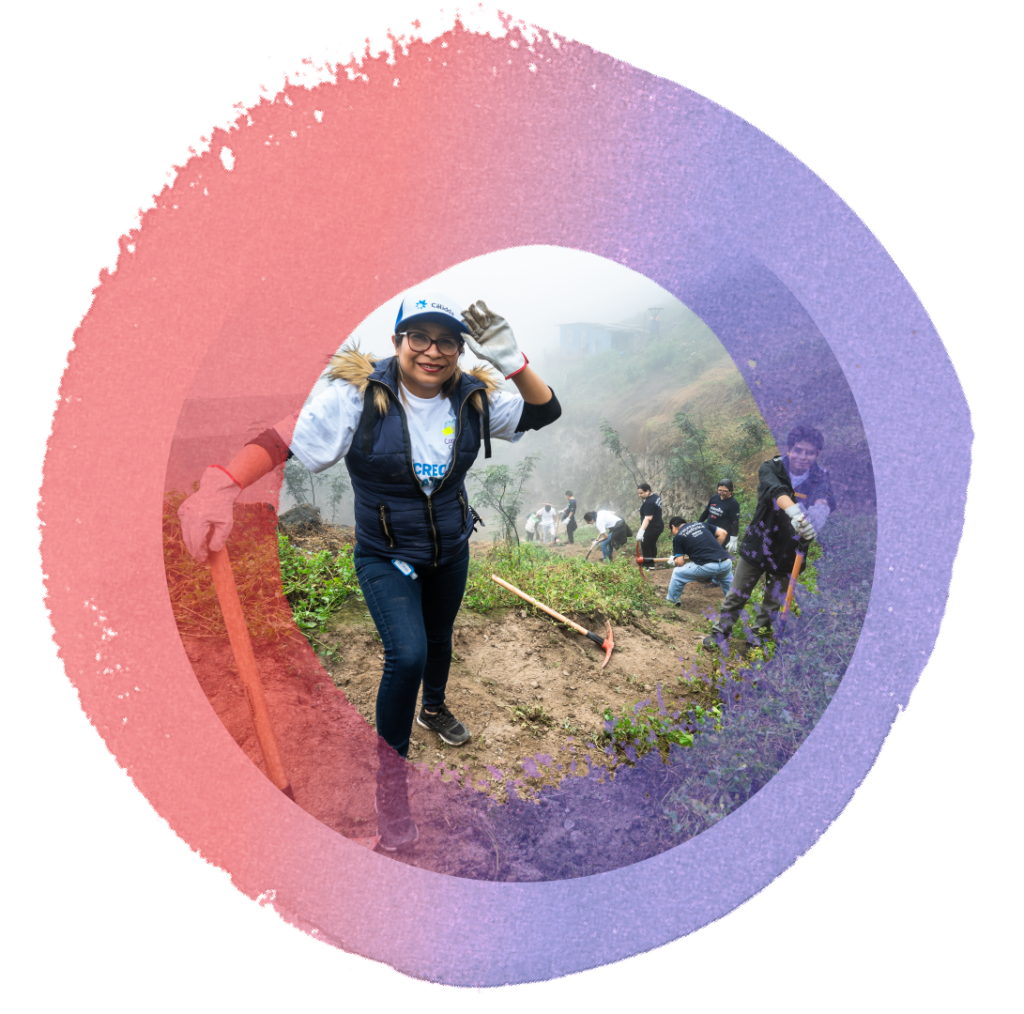Chapter 2
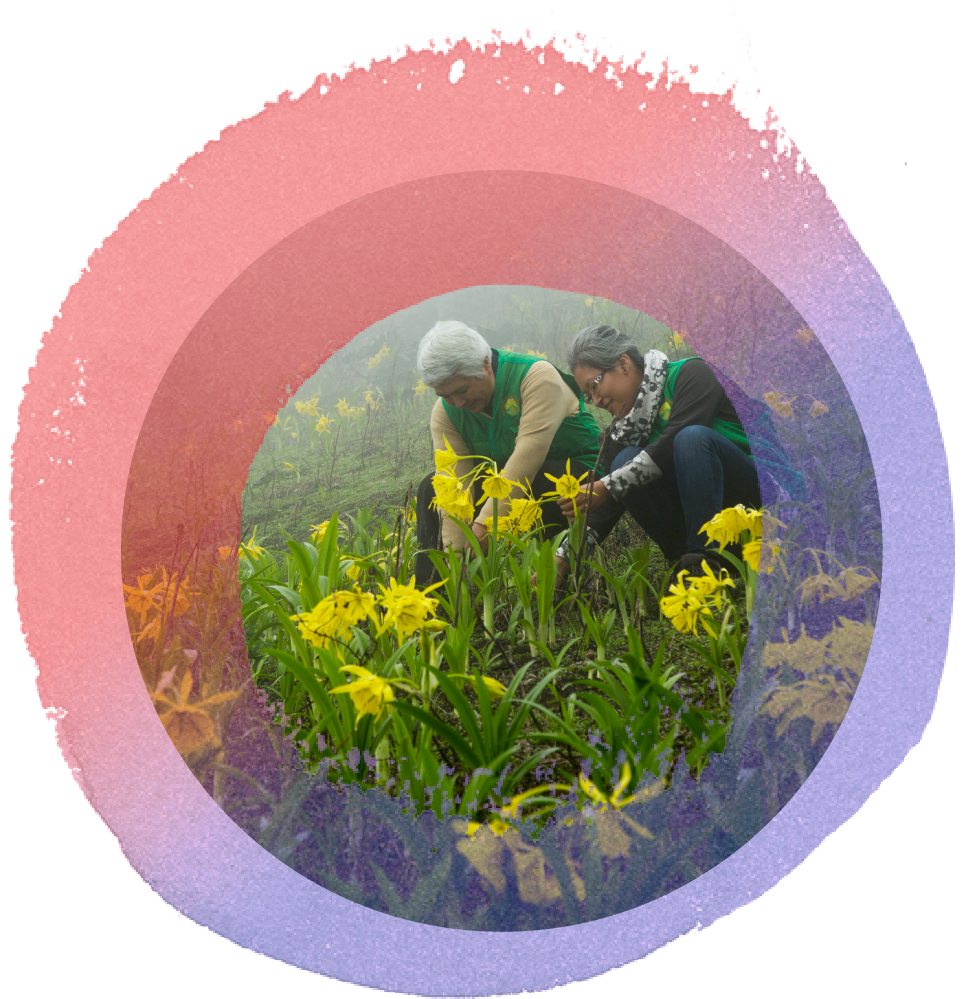
Introduction
Little is known about just how many people volunteer, how they volunteer, and how their contributions can be maximized to achieve the Sustainable Development Goals (SDGs). Answers to these vital questions require data and evidence on a global scale, but these can be unreliable given volunteering’s many definitions.
Fortunately, there has been much progress since the development of UNV/International Labour Organization (ILO) volunteering measurement tools which can capture the full diversity of volunteering efforts. In general, focus has shifted away from just formal or organization-based volunteering towards informal and sporadic forms of volunteering, which may be more relevant in countries with less formal volunteering infrastructure.
Key Highlights
Key Infographics
- Figure 2.3. Calculation of estimates
- Figure 2.5. Volunteer rates (%)
- Figure 2.6. Monthly volunteer rates by type (%)
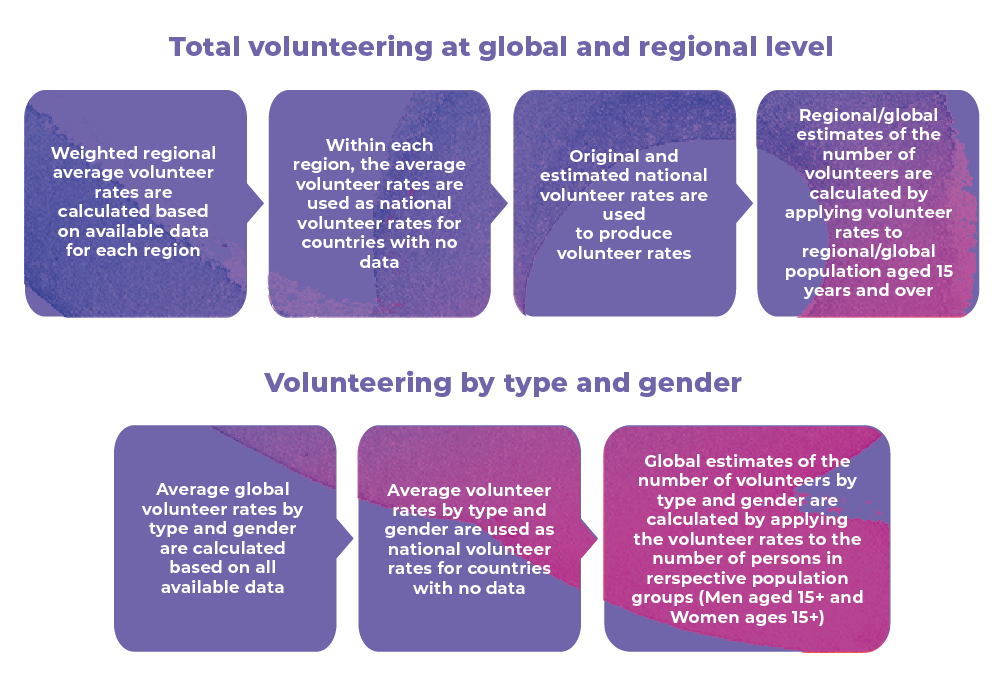
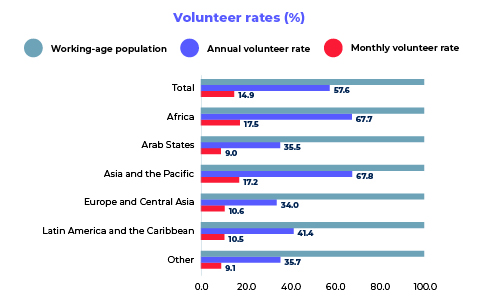
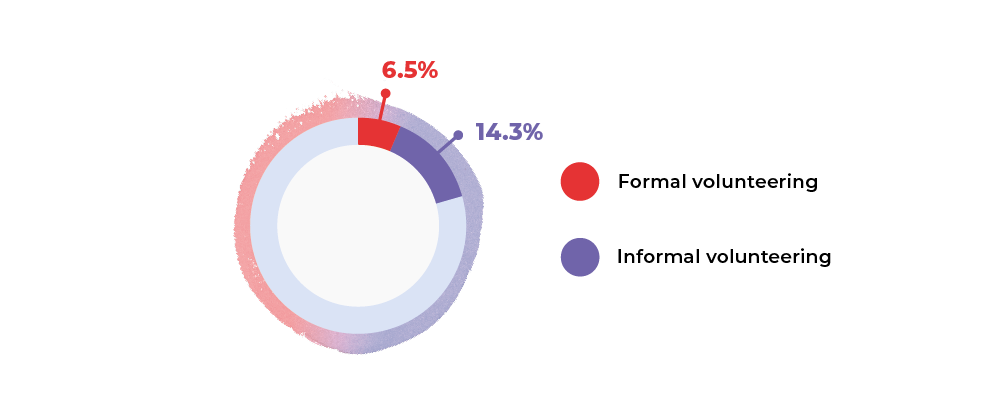
Conclusion
While data remain scarce, the estimates show that volunteering is a massive resource for the Decade of Action to deliver the SDGs, with millions of people contributing across various sectors. Making this information available to policymakers and development practitioners is critical if the world is to benefit from the real value of various volunteering models. However, the COVID-19 pandemic saw many countries postpone plans to measure volunteering in 2020. There is now a need to regain momentum.
The global estimates have likely been impacted by volunteering data collected in 2020, when strict lockdowns and other containment measures were implemented across the world. In addition, statistical coverage in the Global South remains patchy but efforts are under way to systematically measure volunteer efforts in the region.
As countries seek to build forward better in the wake of the pandemic, development strategies should incorporate volunteering measurements as part of environmental, social and economic benchmarks for progress. Member States should also use volunteering data more widely for national planning, analysis and reporting on the 2030 Agenda, and continue to collaborate on measurement issues.
